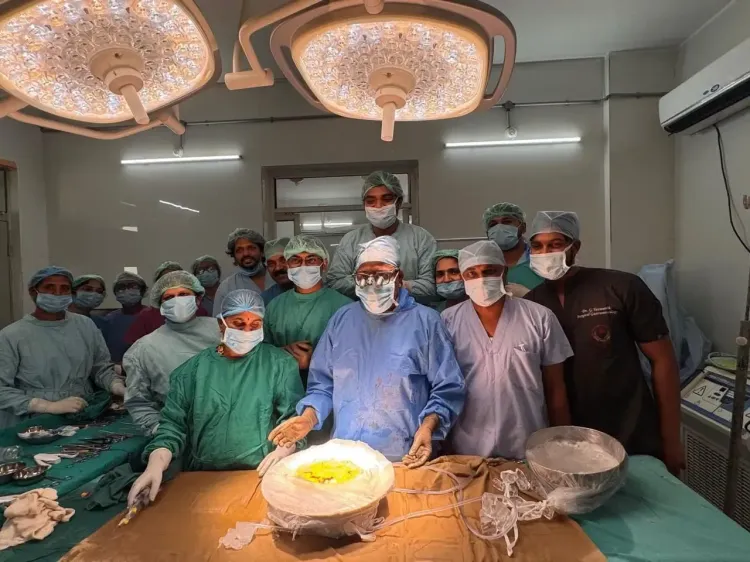Has Telangana Achieved Its First Successful Intestine Transplant?

Synopsis
Key Takeaways
- Osmania Hospital has successfully conducted Telangana's first intestine transplant.
- The patient is recovering well and tolerating a soft diet.
- The medical team overcame significant challenges to achieve this milestone.
- Osmania Hospital has a legacy of excellence in healthcare since 1919.
- Multidisciplinary collaboration was key to the transplant's success.
Hyderabad, April 27 (NationPress) The pioneering intestine transplant in Telangana was successfully conducted by medical professionals at the state-run Osmania General Hospital.
A 40-year-old male patient suffering from short gut syndrome and reliant on Total Parenteral Nutrition (TPN) was admitted to the hospital after experiencing recurring central line infections and significant central vein thrombosis. Medical teams reported that he had undergone substantial resection of the small bowel and right colon due to extensive gangrene caused by acute Superior Mesenteric Artery (SMA) occlusion, leaving only 30 cm of the proximal jejunum intact, starting from the duodenojejunal (DJ) flexure.
On April 19, the healthcare team at Osmania Hospital executed a cadaveric small intestine transplant. Currently, the patient is successfully tolerating a soft diet and his ileostomy is functioning properly.
Follow-up endoscopy on the seventh postoperative day showed a healthy, pink mucosa in the transplanted bowel, with biopsy results confirming no signs of rejection, according to the medical team.
This achievement followed a recent liver transplant for a 14-year-old patient suffering from Marfan’s syndrome and severe hepatopulmonary syndrome (HPS).
Marfan’s syndrome is a genetic condition that weakens body tissues and increases heart problem risks, while HPS is a rare condition where liver disease leads to low oxygen levels and lung vessel dilation, causing breathing difficulties.
A multi-disciplinary team of hepatologists, pulmonologists, cardiologists, and transplant surgeons dedicated months to evaluate the patient's condition before deciding to proceed with the high-risk transplant.
The surgery involved a team of 30 doctors and lasted 20 hours, which they termed a global achievement.
Established after the catastrophic Musi floods of 1908, Osmania Hospital is the oldest and one of the key government healthcare facilities in the state, founded by Mir Osman Ali Khan, the last Nizam of Hyderabad, and named in his honor.
Constructed in the Indo-Saracenic style, the hospital was completed in 1919 and has hosted numerous significant medical conferences and research initiatives over the past century.









